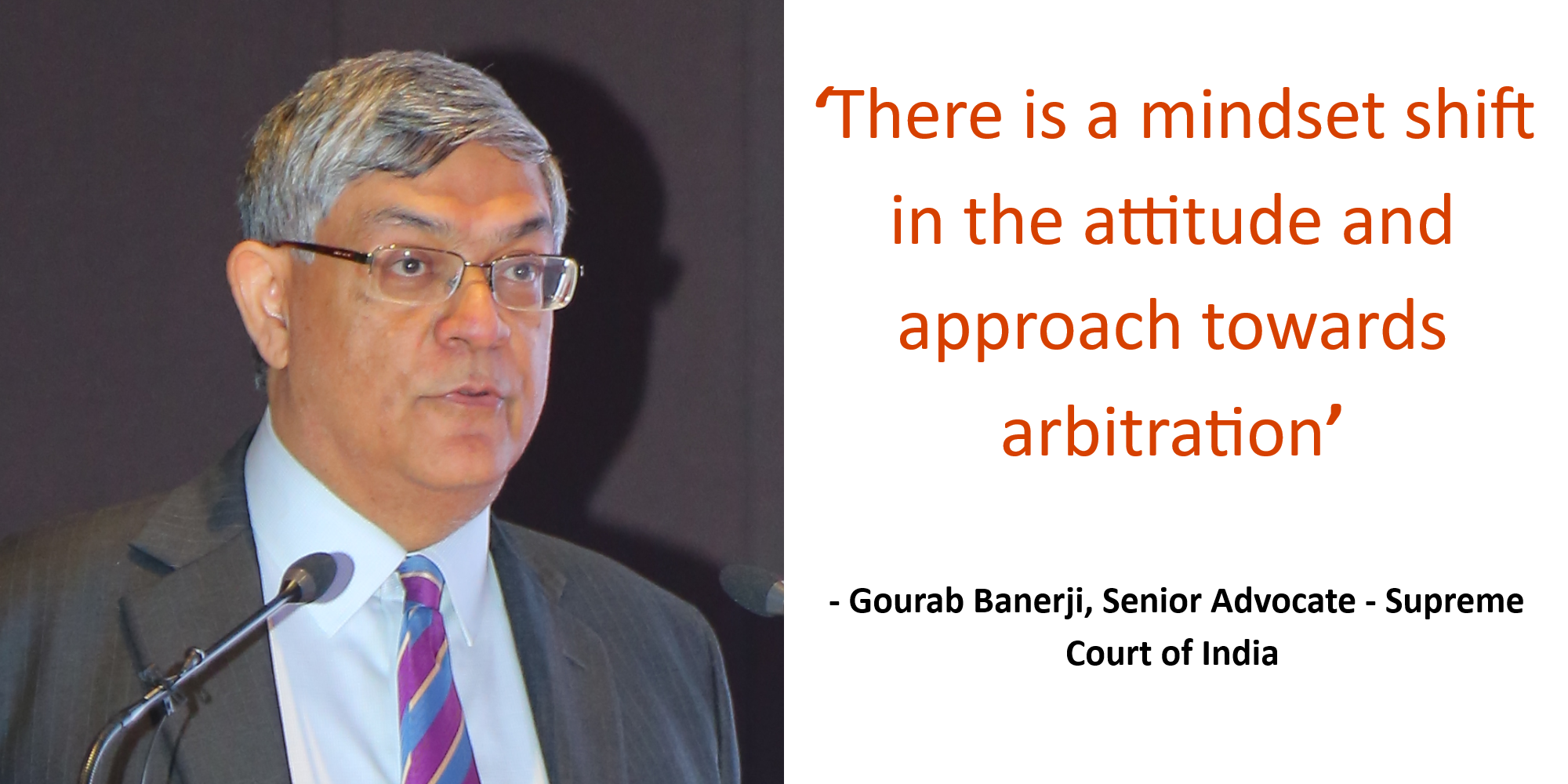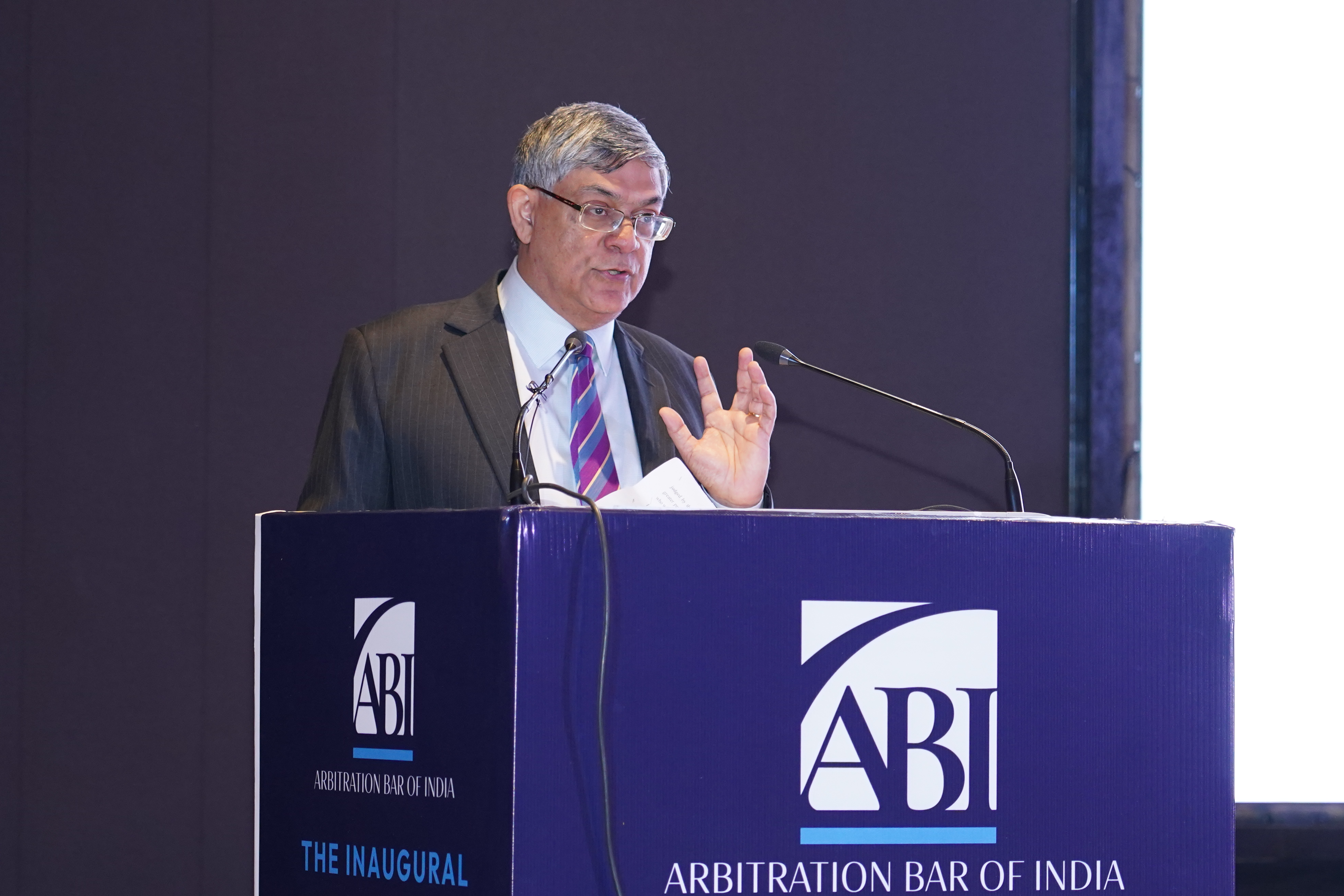
The Arbitration Bar of India (ABI) was launched on 11th May, with Gourab Banerji, a senior advocate at the Supreme Court of India, appointed as its inaugural president. Banerji shares with ALB about how ABI's plans to take arbitration to cities across India for better accessibility, increase the quality of arbitration institutions, address the issues of slow enforcement and long arbitral timelines for speedier dispute resolution, and integrate technology in the dispute resolution process for enhanced efficiency.
ALB: What are the reasons behind the launch of the ABI, and what are the organisation’s goals for India’s burgeoning domestic and cross-border arbitration market?
Gourab Banerji: Presently, India has the fifth largest economy in the world. India was the fastest-growing economy in G20 countries by end of 2023, and by 2030, the economy is predicted to surpass that of Japan and Germany. In other words, India is slated to be one amongst the big three in a multipolar world.
India is an excellent option for foreign investors and international businesses in this climate, increasing the likelihood of choosing commercial arbitration when a dispute arises. We have a talented pool of arbitration practitioners with representation across disciplines and they are among our best human resources.
The Arbitration Bar of India has been created to enhance the future of commercial arbitration in India. ABI will help India progress as a pro-arbitration jurisdiction by improving the efficiency and efficacy of the arbitration process, and fully harnessing its human capital by taking into account diversity, helping our present practitioners.
ABI will be an organisation that connects practitioners and stakeholders all over India, not just in cities such as Delhi and Mumbai. This integration of arbitration will, I hope, promote the development of arbitration as a choice in commercial cities currently accustomed to litigation, such as Kolkata, Pune, Hyderabad, and Ahmedabad.
ABI’s training programs, seminars and conferences are expected to develop professional development of arbitration practitioners in India and, therefore, increase confidence in foreign parties coming to India.
ALB: Reports find that Singapore remains the preferred venue for India Inc. when it comes to cross-border dispute resolution. What is the roadmap to increase India-seated arbitration, and what are the biggest challenges to this objective today?
Banerji: India was the third-highest foreign user of arbitration in the Singapore International Arbitration Centre in 2023 after Hong Kong and China. Most arbitration in Singapore is institutionalised arbitration, and this contrasts with the current arbitration climate in India, where ad hoc arbitration is very common.
The solution is to address the problem of delayed enforcement and address the perception of undue court influence. There needs to be an increased presence of well-established arbitration institutions in India to improve the parties' trust in certainty and predictability in the system. Additionally, with increasing use of institutional arbitration, a separate pathway for appointments can be established, which obviates the need to approach courts. ABI will help create and develop current arbitration institutions to be on par with LCIA and SIAC. Pertinently, there is a mindset shift in the attitude and approach towards arbitration as a serious mode of dispute resolution, in contrast with the situation ten years ago.
There is also a lack of awareness of the public about arbitration as a dispute resolution mechanism. ABI will hold conferences and partner with stakeholders to generate awareness of arbitration among clients and the younger generation of lawyers to become full-time arbitrators. One of the objectives of the ABI is also to create a repository of academic materials.

ALB: The central government has been actively promoting India as a venue and governing law for arbitration. What are the key regulatory changes in this regard and what has been the market response to these changes?
Banerji: The central government has incorporated key regulatory changes as seen in the 2015, 2019 and 2021 Amendment of the Arbitration and Conciliation Act 1996. The 2015 Amendment helped quicken the time period of arbitration as it introduced a provision that requires the arbitral tribunal to make its award within a year. The introduction of fast track procedure for arbitration that can be completed in six months also helped solve the delay problem of the local courts. Crucially, for domestic arbitrations, Section 34 of the Act was amended to dispense with automatic stay of enforcement of arbitral awards. The 2019 Amendment helped strengthen the notion of confidentiality in arbitration proceedings and immunity for arbitrators.
The market response has been positive towards the effort of Indian lawmakers on making India a pro-arbitration jurisdiction. The signals from the Indian judiciary have also been largely pro-arbitration with a few exceptions. For example, in 2022, MCIA’s caseload increased 20 percent from previous year. The institution also received 23 new matters, and 13 percent of those matters where were either one or both parties were international.
ALB: Historically, foreign investors have looked at India as a challenging jurisdiction for arbitration, citing slow timelines, particularly in certain sectors, and uncertainty in award enforcement. What is the way forward to address investor concerns and what role will the ABI play under your leadership in this reformation?
Banerji: The primary way to solve the issue of slow timelines is to introduce stringent procedural safeguards that will curb the delays in the local courts. ABI plans to advocate for and help implement stricter timeline procedures by seeking appropriate amendments to the Arbitration and Conciliation Act, which will ensure cases are resolved expeditiously and on time. ABI also plans to advocate for legislative changes that ensure quicker enforcement of awards and a narrow scope of grounds for challenge, increasing certainty in the entire process. ABI will play a proactive role, in consolidating the opinion of arbitration practitioners and formulating recommendations to the Law Commission of India. Ultimately, ABI would act as a legitimate body that consolidates opinions and widens the role played by civil society in law-making. The efforts of ABI will mainly revolve around strengthening comprehensive law-making.
Integration with technology will help improve the situation through features such as electronic filing, virtual hearing, electronic stamping, and AI-based case management platforms. ABI plans to introduce training and seminars for utilising this kind of technology to ensure practitioners are comfortable with technology, as this is a crucial skill clients seek in the market.
ABI plans to meet and connect with several institutions throughout India to help standardise arbitration procedure, ensuring their lack of unpredictability regardless of the city where the arbitration is conducted.


